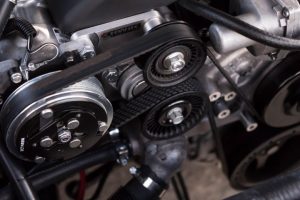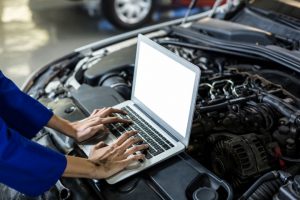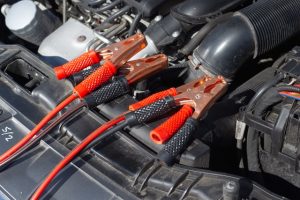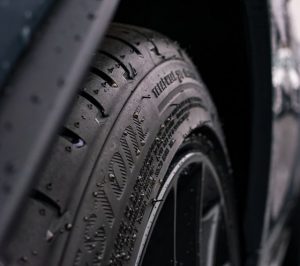CAR MAINTENANCE GUIDE
- Supercars
- May 10, 2022

Having a car is a huge convenience and owning a car is a huge responsibility. Not only do you have to worry about the monthly payments and gas prices, but you also have to keep up with the car’s general maintenance. Failing to do so can result in costly repairs. In order to ensure that your car continues to run smoothly and lasts as long as possible, it’s important to properly maintain it.
Here we’ll look at the basic car maintenance tips and general guidelines to help you determine when you should perform routine car maintenance, importance of owner’s manual and following the maintenance schedule and service records.
We will outline the necessary steps you should take on a short term, long term, and seasonal check ups and why these check ups are important and beneficial in order to keep your car functioning its best.
In this article we will guide you with the car maintenance checklist and answer the following questions:
- When to perform routine car maintenance
- Why is it important to read the owner’s manual
- Why is it important to follow the vehicle’s maintenance schedule and service interval record
- What do short-term check-ups include
- What do long-term check-ups include
- What do seasonal check-ups include
- Why are car maintenance check-ups important and beneficial
- Where to ask for help in maintaining your car
WHEN TO PERFORM ROUTINE CAR MAINTENANCE
It is important to remember that car maintenance is not just for major repairs. There are a number of routine tasks that you can do on a regular basis to help keep your car running smoothly.
Regular maintenance on your car should begin at 5,000 miles and continue from there every 5,000-10,000 miles. Your car inspected by a qualified mechanic every 12 months can help you avoid problems.
There are a few key things that you should do as part of your regular car maintenance routine. The following is a list of items are the most important car maintenance checklist that should be checked as part of a short-term, long-term, and seasonal car maintenance check-up:



SHORT TERM CHECK-UPS
It’s important for drivers to perform short-term check-ups on their cars to ensure that everything is running smoothly. It’s best way to maintain your car and identify any potential problems before they turn into expensive repairs.
OIL LEVELS – Checking the oil should be done at least once a month. Oil is the lifeblood of a car. It helps to keep all the parts moving and prevents them from overheating. If the oil level is low, it can cause extensive damage to the engine. Checking the oil level is a quick and easy process. All you need is a funnel and a container to catch the oil. Without proper lubrication, your engine can wear down very quickly.
COOLANT LEVELS – Checking the coolant levels is an essential task that should be done at least once a month. Coolant helps keep your engine from overheating, so it’s important to make sure that it’s always at the correct level.
AIR FILTER – You may need to replace your car’s air filter once or twice a year, depending on how much you drive. It’s best practice to check the air filter when you change your oil.
TIRE PRESSURE – You should make sure your tires have the correct air pressure. Check the sticker on the inside of your driver’s side doorframe to determine the air pressure in pounds per square inch or PSI. You can also consult your local tire dealer or check the owner’s manual for proper inflation information. It is recommended to check the tire pressure at least once a month.
CAR LIGHTS – SIGNAL LIGHTS, FOGLIGHTS, PARKING LIGHTS, HAZZARD LIGHTS, HEADLIGHTS, AND TAIL LIGHTS – The purpose of car lights is to provide visibility for both the driver and passengers. A regular check will ensure that you can see the road clearly and that the inside of the car is well lit. If the car lights are not working correctly, it can be very dangerous – not only will it be inconvenient, but you may also put yourself, your passengers, and other road users in danger. Automotive professionals suggest to check the car lights at least once a year.
WHEELS ALIGNMENT – There are a number of telltale signs that indicate it might be time for a wheel alignment. If your car pulls to one side when you’re driving, if your steering wheel is crooked when you’re looking straight ahead, or if your tires are wearing unevenly, it’s probably time for an alignment.
In general, most experts recommend getting a wheel alignment every 6,000 miles or so. However, this may vary depending on the make and model of your vehicle, the type of driving you do, and the condition of your roads. So it’s always a good idea to check your owner’s manual.
OIL & FILTER – Changing the oil and filter is one of the most important things you can do to maintain your car. If your car uses conventional motor oil, it is suggested to be changed every 3,000 miles or 3 months. If your car has synthetic oil, it suggested to be changed every 5,000-10,000 miles or 6-12 months.
TIRE ROTATIONS – You should check the tire pressure and rotate the tires every 5,000 miles. This is to equalize the natural wear patterns of your tires. Tires wear over time, and rotating them helps to keep them in good condition.
BRAKES – There are a few things that you can look for to tell if it is time for a brake check-up. The signs are (1) if your car pulls to one side when you brake, (2) if your car makes a squealing or grinding noise when you brake. If you notice either of these things, it is time for a brake check-up. Brake check-ups are necessary to ensure the safety of drivers and pedestrians. They involve checking the overall condition of the brakes, including the brake pads, brake fluid, and rotors. You should have it checked every 6 months or 6,000 miles, whichever comes first.
By performing these simple preventive car maintenance check ups on a regular basis, you can help keep your car in good condition and avoid costly repairs.



LONG TERM CHECK-UPS
TRANSMISSION FLUID – If you drive a car with a manual transmission, the manufacturer will typically recommend changing your transmission fluid every 30,000 to 60,000 miles. If you have an automatic transmission, you can boost that range up to 60,000 to 100,000 miles. Changing your transmission fluid at regular intervals will help increase the lifespan of your transmission. Neglecting to do so, however, will result in dirty, grimy fluid that won’t lubricate or disperse heat as well.
TRANSFER CASE FLUID – The transfer case fluid is a lubricant that helps keep the gears and bearings in your transfer case running smoothly. It is important to change this fluid on a regular basis, as it can become contaminated and cause damage to your transfer case. It is safe to do a transfer case fluid service every 30,000 miles.
SHOCKS AND STRUTS – Having your shocks and struts inspected on a regular basis is an important part of vehicle maintenance. Cars need regular replacement of shocks or struts every 50,000 miles, depending on your car’s make and model or however often your operating manual recommends it.
COOLANT FLUID – It is recommended by most manufacturers to flush the cooling system and change the coolant as often as every 30,000 miles, regardless of whether or not you want to avoid serious problems like engine failure.
SPARK PLUGS – Spark plugs play an important role in the engine. They ignite the air-fuel mixture, which powers the engine. Your car can run poorly or not at all when spark plugs aren’t functioning properly.
The manufacturer’s recommendation is a good starting point for when to replace spark plugs, but it’s not always accurate. Spark plugs can last anywhere from 30,000 to 100,000 miles, but this varies depending on the make and model of your car, the type of spark plugs, and your driving habits.
SERPENTINE BELT – A serpentine belt, also known as a V-belt, is a belt that is used to transfer power from the crankshaft of the engine to the alternator, air conditioner compressor, water pump, and other accessories. The serpentine belt is a single, continuous belt that winds around several pulleys.
The serpentine belt should be replaced if it becomes cracked, frayed, or glazed. It should also be replaced if it is more than 3 years old. It is important to replace the serpentine belt when it becomes worn or damaged. A worn or damaged serpentine belt can cause the engine to overheat, the alternator to fail, the air conditioning compressor to stop working, and other problems.
FRONT AND REAR DIFFERENTIALS – Replacing your front or rear differential with these common reasons (1) differential fluid leakage. If you notice a leak, it’s important to get it fixed as soon as possible as it can damage other components of your vehicle. (2) it experiences wear and tear. Over time, the gears in the differential can become worn, leading to problems with your car’s performance. If you’re not sure whether you need to replace your differential, bring your car into a mechanic for a diagnosis.



SEASONAL CHECK-UPS
REPLACE WINDSHIELD WIPER BLADES – If the windows fog up or the blades make a screeching sound when the system is on, it’s time for a replacement set. This is an important car maintenance measure. If you find yourself in a rainstorm, the windshield wipers are what give you visibility. You never know when you may need them, so check the wiper blades often.
BATTERY CHECK – Car battery maintenance includes checking the acid level around every six months. Keep an eye out for acid stratification, which can happen when batteries stay at a charge below 80 per cent, never receive a full charge or have shallow discharges. You should have the battery tested and replace it if necessary.
CHANGING TIRES AND TIRE TREAD DEPTH – Tires are a critical part of your car and need to be in good condition for both safety and efficiency. Most people think they should wait until the tread is completely gone, but that’s not the case. You should actually change your tires when they have about 4/32nds of tread left. The time to change tires depends on a variety of factors: the climate, the type of driving you do, and the age and type of your tires. But as a general rule, most drivers should plan to change their tires every six years, or every 50,000 miles.
WASHER FLUID LEVELS – Windshield washer fluid is an important safety precaution, but it doesn’t actually improve your car’s performance. Even so, it’s crucial to keep your windshield clean so you can see where you’re going.
Professional car maintenance services offer a wide range of services that can vary depending on the company.
Most companies offer Preventive Maintenance Service (PMS) and minor and major repairs.
WHY READING THE OWNER’S MANUAL IMPORTANT
When you buy a new car, the dealer hands you a large stack of papers. You may be tempted to throw them in the glove box and never look at them again, but you should resist that temptation! The car owner’s manual is a valuable document that can help you keep your car running well and avoid expensive repairs.
The car owner’s manual contains valuable information about your car’s features and functions of your car and how to use them. It also includes a maintenance schedule, so you can keep track of when you need to take your car in for service.
The manual can also help you to troubleshoot problems and understand your car’s warranty. Understanding your car’s manual can help you to stay safe on the road. If you have any questions about your car, the manual is the best place to find the answers.
IMPORTANCE OF FOLLOWING THE VEHICLE’S MAINTENANCE SCHEDULE AND SERVICE INTERVAL RECORD
Here are the reasons why it’s important for a vehicle owner to maintain the vehicle’s service interval record and following the recommended service schedule is advisable.
- Prevent costly repairs – One of the most important reasons is that regular maintenance can help prevent expensive repairs in the future. Maintenance such as oil changes, tune-ups, and brake inspections help keep all of the vehicle’s systems running smoothly. If these systems are not maintained, they can begin to wear down and eventually break, which can lead to much more expensive repairs.
- Higher resale value – Another reason when you maintain your car following the schedule in the owner’s manual, it not only keeps your warranty valid but also helps preserve the value of your car. A well-maintained car will have a higher resale value than one that has not been properly taken care of.
CAR MAINTENANCE CHECK UP SERVICE IMPORTANCE AND BENEFITS
If you’re like most people, you likely only take your car in for a check-up when there’s something wrong. However, regular maintenance is key to keeping your car running well – and can even help you avoid over-priced repairs in the future.
Here are 7 reasons why you should bring your car in for a check-up at least once a year:
- To ensure your car is running safely and efficiently. A routine check-up will include a test of your car’s essential systems, such as brakes, steering, and suspension. If any of these systems need repair, it’s best to address the issue sooner rather than later.
- To find potential problems with your car before they become bigger, more expensive issues. Regular check-ups can help identify small problems before they turn into major headaches.
- To keep your car in its best possible condition. A check-up will include a visual inspection of your car’s body, tires, and brakes to look for any signs of wear and tear.
- To avoid costly car repairs. Scheduling regular maintenance check-ups for your car is one of the simplest and most effective ways to keep it running smoothly for years to come. You’ll catch any potential problems before they turn into costly repairs.
- To save money on fuel. Routine maintenance can help improve your car’s fuel efficiency by keeping all of its systems in good working order.
- To extend your vehicle’s lifespan. Regularly checking up your car can help extend your vehicles lifespan. This will also keep all the major parts checked to ensure that they are working correctly.
- To have peace of mind. Regular checks will give you peace on mind ensuring that you and your loved ones are safe while driving your car.
WHERE CAN YOU ASK FOR HELP IN MAINTAINING YOUR CAR
There are a few places you can go for help in maintaining your car.
ONLINE FORUM OR COMMUNITY
There are many online communities devoted to car maintenance, and they can be a great resource for finding information and getting help with repairs.
CAR DEALERSHIP
Car dealerships typically have service centers that can help you with all sorts of car maintenance tasks.
LOCAL MECHANIC
A mechanic can help you with a variety of tasks, such as changing the oil, checking the tires, fixing minor and major problems and maintenance your car’s scheduled maintenance. Some local mechanic offers a one stop shop for all your automobile’s needs.
THE BEST AUTO MECHANIC SHOP NEAR YOU
We are here to provide you the best of the best auto mechanic shops for your car needs. To help make things a little bit easier for you, we have put together a list of the highly recommended auto mechanic shops near you!
When you are in need of an auto mechanic shop in Ghana, be sure to check out our list!
Recommended
Service Provider
New Vision Auto Services
Down Papaye , Osu Re Osu-RE, Accra, Ghana
+233-27-748-4049
Percy Awuku +233-24-425-6379
Service Provider
Name
Physical Address
Contact Number
Service Provider
Name
Physical Address
Contact Number









